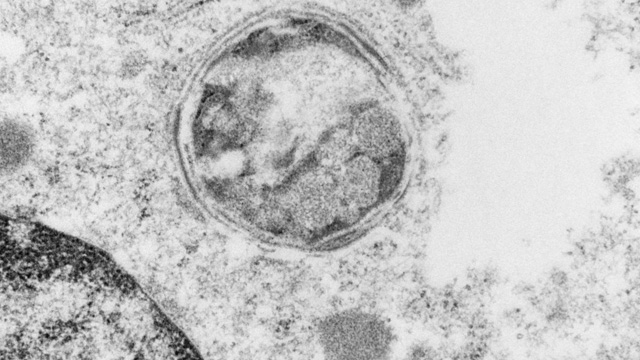 MACROPHAGE AUTOPHAGY: The autophagosomes within macrophages helps keep atherosclerotic plaques from bursting and causing blood clots. KRISTY BROWN AND YING WANG, COLUMBIA UNIVERSITY
MACROPHAGE AUTOPHAGY: The autophagosomes within macrophages helps keep atherosclerotic plaques from bursting and causing blood clots. KRISTY BROWN AND YING WANG, COLUMBIA UNIVERSITY
X. Liao et al., “Macrophage autophagy plays a protective role in advanced atherosclerosis,” Cell Metabolism, 15:545-53, 2012.
Atherosclerotic plaques can prompt heart attacks and strokes when lipid-containing macrophages inside them die and necrose, causing the plaque to rupture and clog blood vessels. Nudging macrophages to respond to stress by breaking down their own organelles—a process called autophagy—can keep plaques stable by reducing macrophage death and by making it easier for phagocytes to recognize and remove those that do die. This study is the first to connect autophagy in macrophages to protection against disease progression, says Rick Austin of the Thrombosis and Atherosclerosis Research Institute in Hamilton, Ontario, Canada, who was not involved in the research.
Although previous studies had shown that some cells in plaques ...












